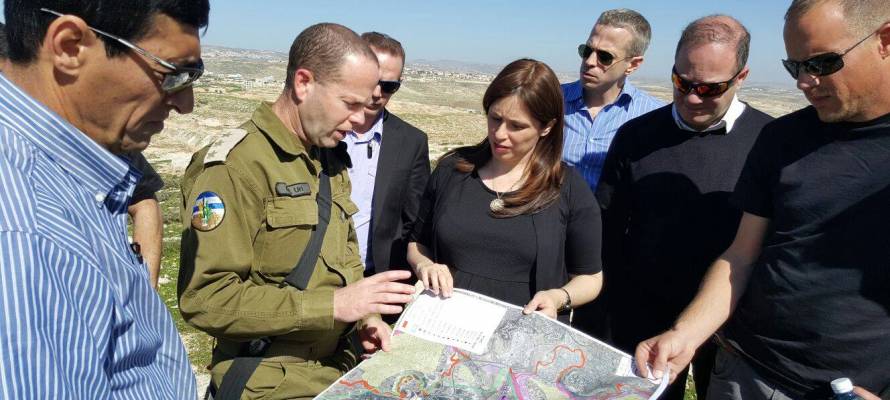Israel’s Deputy Foreign Minister Hotovely rejected attempts by foreign entities, and chiefly the EU, to determine Israel’s future by funding illegal projects in order to create facts on the ground.
Israel will not allow foreign entities to meddle in its affairs and determine its future, Israel’s Deputy Foreign Minister Tzipi Hotovely stated Monday.
“In Area C [under Israeli sovereignty], intensive construction is being carried out on over 1,000 illegal buildings by different authorities, and among them international authorities that are asking for negotiations between the two sides,” Hotovely said, according to I24 news, relating to illegal Palestinian building in Israeli areas in Judea and Samaria, funded and encouraged primarily by the European Union (EU).
“Activities in these territories that are not coordinated with Israel do not advance peace and coexistence between the two sides and give backing to the processes at the UN by the Palestinians, which further distances any chance of an agreement,” she added.
Her conclusions were based on data and groundwork done by Regavim, a research-based legal advocacy NGO dedicated to ensuring accountable use of Israel’s national land.
Hotovely made the comments while touring the E1 area south of Jerusalem.
Her tour came in the wake of reports that Israel’s Civil Administration had demolished dozens of illegal Palestinian structures in the Judea and Samaria area since the beginning of 2016, at least 14 of which were funded by the EU.
At issue is the future of areas in Judea and Samaria known as “Area C,” the 60 percent of the territory that remained under full Israeli control as part of interim peace accords two decades ago. Its ultimate fate has been a major contention point in peace talks between Israel and the Palestinians.
Israel seeks to keep large chunks of the area, which is home to 400,000 Israelis. Israeli Education Minister Naftali Bennett and other Israeli leaders have called to annex the area.
According to interim peace accords, any construction in Area C requires permission from Israel.
The EU runs dozens of projects in Area C, many of them undermining Israeli control of the area and which are designed to grab land and create facts on the ground ahead of a possible final agreement. The Israeli government views these efforts with great suspicion and often demolishes illegal projects.
The spat comes against the backdrop of a larger dispute over the Israeli presence in Judea and Samaria in general, to which the EU is outright opposed. The EU considers the Israeli communities illegal, claiming they undermine the goal of establishing a Palestinian state.
“The recent uptick in enforcement activities against EU-funded illegal structures in Area C is based on a decision of the political echelon to put a end to the rampant undiplomatic and illegal behavior of the EU to fulfill its political goal – with the help of NGOs – of establishing a Palestinian state without negotiations,” Regavim director Ari Briggs told United with Israel. “This follows a year of intense pressure by Regavim on the judicial and legislative branches to put a halt to this illegal behavior,” Briggs said.
By: United with Israel Staff
